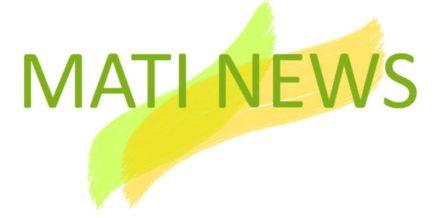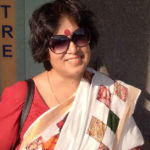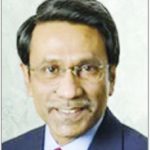 In this moment of corona crisis, we must choose between the two pairs of options that lie ahead in the post-Corona world — monopoly state surveillance or civic empowerment. And the second is national isolation or international sympathy.
In this moment of corona crisis, we must choose between the two pairs of options that lie ahead in the post-Corona world — monopoly state surveillance or civic empowerment. And the second is national isolation or international sympathy.
In order to prevent an epidemic, the entire civil society has to abide by certain rules. There are two main ways to reach this goal. One way is for the government to monitor its citizens and punish those who break the law. For the first time in the history of civilization, it is possible to monitor all citizens at the same time. Technology has made this impossible possible. Fifty years ago, the KGB could not follow 240 million Soviets 24 hours a day. Nor was it possible to effectively analyze the vast amount of information collected. The KGB relied heavily on blood flesh spies and analysts. As a result, it was not possible for him to appoint a spy behind every citizen. But now the government relies more on omnipresent sensors and miraculous algorithms than on bloodthirsty spies.
Governments have already begun using a number of new surveillance technologies to combat coronavirus epidemics. China has played the most significant role in this regard. By closely monitoring people’s smartphones, using millions of face-recognizing cameras, and forcing people to report their physical condition and body temperature, the Chinese government is now not only able to quickly identify suspicious carriers, but also victims. By observing the movements, it is also possible to identify the people who have come in contact with the person. Some mobile apps have also come out that alert citizens whenever they approach an infected person.
This national technology is not limited to East Asia. Israeli Prime Minister Benjamin Netanyahu recently allowed the country’s security services to use surveillance technology commonly used in the fight against terrorists to identify those infected with the coronavirus. The country’s parliamentary sub-committee was reluctant to recognize the move. Netanyahu dismissed their objection by issuing an “emergency ordinance.”
You can argue that there is nothing new in this. Over the past few years, the government and various agencies have been using advanced technology to monitor people, closely monitor their movements, and control their thinking. If we are still not careful enough, this epidemic will become one of the milestones in the history of surveillance. Not only will countries that have so far refused to use mass surveillance technologies apply it as a matter of course, but it will also bring about dramatic changes in surveillance — surveillance that only monitors the human body from the outside. Now it will enter the extremes of the body.
Until now, if you touched the screen of the smartphone with your finger and clicked on a link, the state would only want to know exactly what your finger is clicking on. But the coronavirus has changed the direction of that interest. Now the state is also interested to know the temperature of your finger and the amount of your blood pressure under the skin.
One of the most common surveillance problems we encounter in the workplace is that no one knows exactly how we are being monitored and what the consequences might be in the future. Surveillance technology is improving at an incredible pace. What was science fiction only ten years ago, today it has become stale news. Imagine a government that forces its citizens to wear a biometric bracelet that measures body temperature and heart rate 24 hours a day. The information that will be found in it will continue to be classified and analyzed through official algorithms. This algorithm will know whether you are sick or not before you know it yourself. It will also tell you where you went and who you met. In this way the chain of transmission can be shortened or even broken at an impossibly fast rate. Such a system can prevent the spread of any epidemic in just a few days. Sounds great to hear, doesn’t it?
The problem is, it will also give legitimacy to a bone-chilling surveillance system. For example, if you find out that I’m clicking on a link to Fox News instead of CNN, you’ll understand a lot about my political ideology, even my personality. But if you can measure my body temperature, blood pressure and heart rate while watching the link video, you will also know what makes me happy, when I cry and when I get really angry.
It is important to remember that anger-pleasure-annoyance-love are all mere physiological features like fever or runny nose. So the technology that can catch my cold, it is possible to recognize my joy. If different corporate bodies or governments gather our biometric data in one place and start dealing with it, they will recognize us as well as we do not know ourselves. Then they can not only guess all our feelings, but also influence our thinking in such a way that they can sell us anything from any product to any political leader. If biometric surveillance were introduced, it would be so modern that even the Cambridge Analytica data hacking system would seem primitive. Imagine South Korea in 2030, when every citizen has to wear a biometric bracelet 24 hours a day. Then if you listen to an eloquent speech by that ‘great leader’ and that bracelet accurately records the secret anger signals in your mind, then you know what the consequences might be! You must turn to biometric surveillance as a temporary measure taken in an emergency. You can ask questions. The system should be abolished as soon as the state of emergency ends. But there is a bad habit of staying away from such temporary arrangements even after the state of emergency is over, because there is always a new state of emergency on the horizon. Let’s talk about my homeland Israel. During the war of independence in 1947, a state of emergency was declared in the country. Appropriately at that time there were some temporary emergency measures (believe me, I’m not kidding) like censorship of newspapers, land acquisition, and even making puddings. Victory in the War of Independence has been achieved long ago, but Israel has not ended that state of emergency. And he unknowingly forgot to repeal those temporary measures introduced in 1948 (the Emergency Pudding Ordinance was mercifully repealed in 2011).
Even at post-Corona world when the amount of coronavirus infection drops to zero, the data-hungry state can still show a variety of tricks to continue biometric surveillance. For example, there is a risk of a second stage of the virus, or a new strain of the Ebola virus has been found in Central Africa. In the last few years, a huge battle has erupted over the occupation of our personal territories. The coronavirus-induced crisis could ignite that gunpowder. Because if people are asked to choose between privacy and health care, they will accept the latter.
At the post-Corona world the main problem is telling people to choose between health and personal privacy. Because it is a wrong option. We can and should get both personal privacy and health care. We may want to protect our health and prevent the coronavirus epidemic, but not by establishing a monopoly on surveillance, but by empowering citizens. In the past few weeks, South Korea, Taiwan and Singapore have managed to box the coronavirus through certain plans. These countries have used some surveillance technology, but much more depends on intensive testing, accurate reporting, and the willing cooperation of people who are well-informed about the situation.
Strict surveillance and severe punishment are not the only ways to force people to adhere to beneficial codes of conduct. In the post-Corona world if people can be told the truth based on science and if they can trust the government authorities who are saying these things, then they can do things right on their own. Then they will no longer need a ‘Big Brother’ to monitor their necks. A spontaneous and well-informed population is always much more empowered and functional than a group of ignorant and policed people.
In the post-Corona world Hand washing with soap can be taken as an example. Its introduction in human health is a landmark step. This simple act saves millions of lives every year. Today we find it very simple, but only in those days, in the nineteenth century, did scientists discover the benefits of hand washing. Earlier, even doctors or nurses would perform one operation after another without washing their hands. Now millions of people wash their hands with soap every day, not because they will wash their hands with soap but because they have realized the importance of the matter. I wash my hands with soap because I have heard about viruses and bacteria, I understand that these tiny organisms spread diseases and I know soap can kill them.
But it takes faith to get so much consent and cooperation. People have to believe in science, government authorities and the media. But over the past few years, irresponsible political leaders have eroded confidence in science, government officials, and the media. Now those irresponsible leaders will walk the path of absolute hegemony on the pretext that the people cannot be trusted at all to obey the rules.
It is only natural that the trust that has been shattered for so many years cannot be restored overnight. But the time is not normal now. In times of crisis, the mind also changes very quickly. Your brother or sister may have a bitter relationship with you for many years, but when an emergency arises, you suddenly find a hidden treasure of faith and warmth in your heart and rush to help each other. There is still plenty of time to build new confidence in science, government authorities and the media, rather than establishing a watchdog administration. In the post-Corona world We must also use ever-new technology, but that technology should be used to empower citizens. I have no objection to monitoring my own body temperature or blood pressure, but that information should never be used to create a sovereign state. Rather, that information will make me more aware of my own likes and dislikes, and will make the government more accountable for its decisions.
If I can be aware of my body health 24 hours a day, I will not only know if I have become a nuisance to other people, but also know which habits are responsible for that state of my health. And if I have access to all the information on coronavirus infections, and if I can analyze them, I can judge for myself whether the government is telling me the truth or whether the government is setting the right policy to prevent epidemics. Remember, the technology that the government can use to monitor every citizen, the same technology that every citizen can monitor the government.
Therefore this coronavirus is also a big test of supernatural citizenship. In the days to come, each of us will have to rely more on scientific information and the words of health experts than on the theories of those baseless conspiracies and the rebukes of greedy political leaders. If we make a mistake in recognizing this right option, we will see that our most precious asset, freedom, is lost and that this is the only way to protect our health.
The second important point is that we have to choose between nationalist isolation and international sympathy. Both this epidemic and the ensuing financial crisis are global problems. Therefore, only with international cooperation can these two problems be solved.
post-Corona world In order to defeat this virus completely, first of all, the exchange of information around the world is very important. This is a big advantage that humans have, not viruses. A Chinese coronavirus cannot exchange “tips” on how to infect humans with an American coronavirus. But China could offer valuable advice to the United States on the coronavirus and how to deal with it. The drug, discovered by an Italian doctor in Milan in the morning, could save many lives in Tehran in the evening.
When the UK is skeptical about formulating a number of policies, it can seek advice from Korea, as Korea may have overcome the same skepticism some time ago. But to make this impossible possible, we need to create an atmosphere of trust and cooperation around the world.
Countries also need to be open-minded about exchanging information and have the mentality to humbly seek advice from each other. And you need to be able to rely on the information and advice that is available. A global effort is also needed to make and distribute medicines and medical equipment — especially testing kits and ventilators. Instead of building each country on its own and continuing to work with the equipment that is available, this production process could be made much more dynamic and life-saving medical equipment distribution more efficiently in a global coordinated system. Just as major industries were “nationalized” during the war, so must the production of essential items in the war against the coronavirus be “humanized”. A rich country with very few infections should voluntarily send valuable medical equipment to the over-infected relatively poor countries. And he should also have faith that when he needs the same, other countries will come forward to help him.
The same can be said about the use of medical staff around the world. At the moment, countries with relatively few infections are able to send medical personnel to areas of the world that are in critical condition. On the one hand, it will help them in times of danger, on the other hand, it will save a lot of valuable experience. Later, if the epicenter of the epidemic is removed, aid may begin to flow in the opposite direction.




















